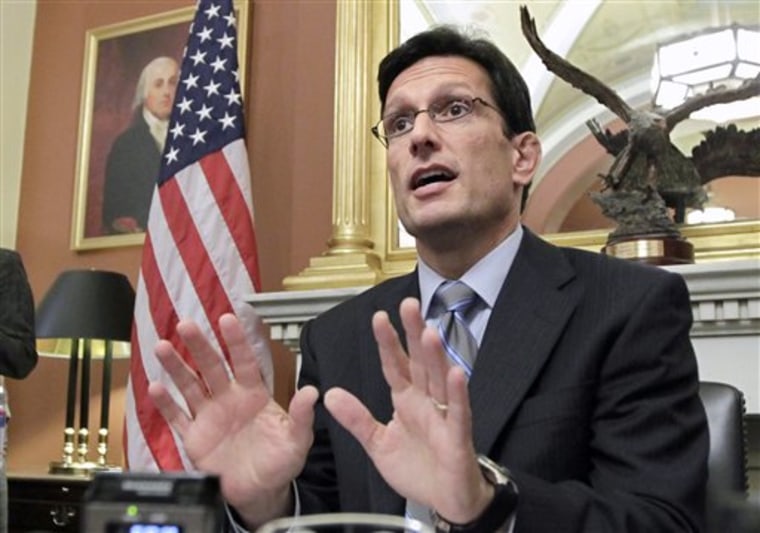The House passed a spending bill Tuesday to fund the government for six weeks, giving Congress and President Barack Obama more time to iron out their differences on a $1 trillion-plus pile of unfinished budget work.
The 352-66 vote sent the measure to Obama in time to avert a government shutdown at midnight. The Senate passed the measure last week.
Debate lasted just minutes.
"We need to keep the doors of the government open to the American people who rely on its programs and services," said the chairman of the House Appropriations Committee, Rep. Harold Rogers, R-Ky. "Furthermore, our economy cannot handle the instability that comes with the threat of a government shutdown."
The vote gives lawmakers additional time for what is sure to be an onerous task: passing the 12 annual spending bills that lay out the day-to-day operating budgets for Cabinet agencies and departments.
The GOP-controlled House, the Democratic-run Senate and the president are in agreement on an overall $1 trillion-plus budget for the government.
Still, there's plenty of disagreement over which programs should be increased and which should get cut the deepest.
Republicans are pressing big cuts to foreign aid and to preserve some budget gains for the Pentagon; Democrats and Obama want more money for domestic programs like job training and heating subsidies for the poor.
At the same time, House Republicans are seeking to use the bills to attack Obama's policies on health care and financial services, environmental regulations and labor rules. GOP lawmakers also are fighting on behalf of conservative social policies such as eliminating federal aid for family planning and barring health care plans for federal workers from covering abortions.
The short-term measure sets a Nov. 18 deadline to wrap up the unfinished spending bills. But it's by no means a sure thing that a bitterly divided Congress and the White House will be able to do so.
Tuesday's vote, in which more than 50 Republicans broke with party leaders supporting the legislation, demonstrated the difficult hand that GOP leaders must play in the negotiations.
Republicans will need support from Democrats to counter opposition from about tea party Republicans, who have signaled their opposition to the spending legislation required to put in place this summer's budget agreement. That makes it challenging for Republicans to maintain a hard line in negotiations.
After passing half of the 12 appropriations bills, House GOP leaders have pulled the plug on floor debates on the rest, apparently because of these party divisions.
The Senate has passed a single bill, though Majority Leader Harry Reid, D-Nev., has promised additional action this month on up to three of the measures.
The likely result is a reprise of this spring's omnibus spending bill. House Speaker John Boehner, R-Ohio, was forced to drop numerous policy provisions in late-stage talks with Obama and make concessions to Democrats on spending priorities.
GOP leaders may not be in a rush to seal such an agreement, especially with Congress scheduled to work in December anyway on legislation approved by a special deficit committee that's likely to focus on benefit programs.
The House vote ended a battle over whether some relief aid for victims of Hurricane Irene and other natural disasters should have been offset with budget cuts.
Lawmakers sidestepped the dispute by dropping $1 billion in disaster relief and accompanying cuts to a loan guarantee program to help automakers retool factories to meet new fuel economy standards.
In the end, the government's main disaster aid account was awarded $2.7 billion through an earlier emergency spending measure, which the administration says is enough to take care of disaster needs over the next few weeks. Several billion dollars more is on the way as part of a final agreement.
